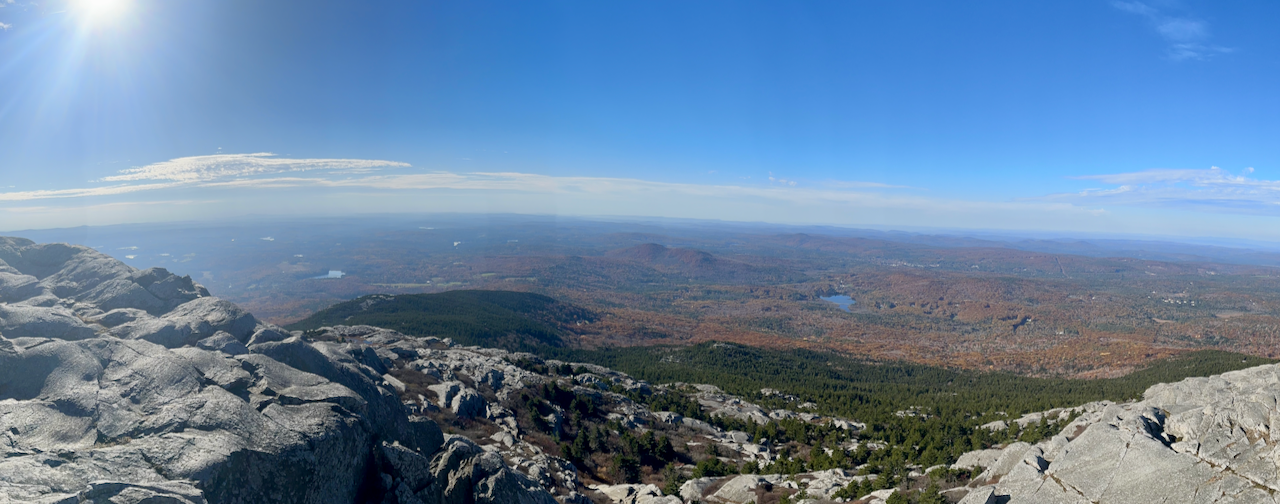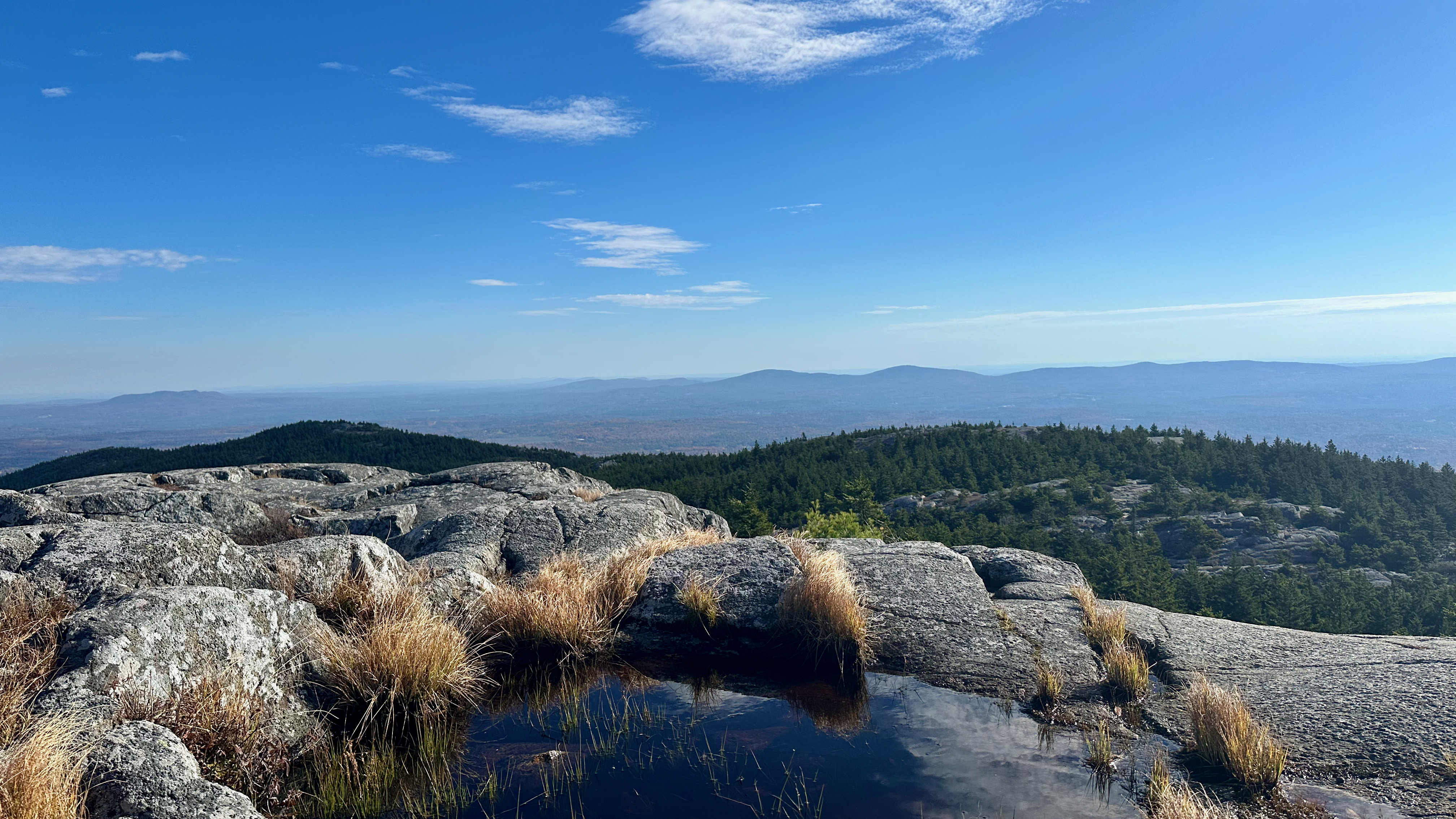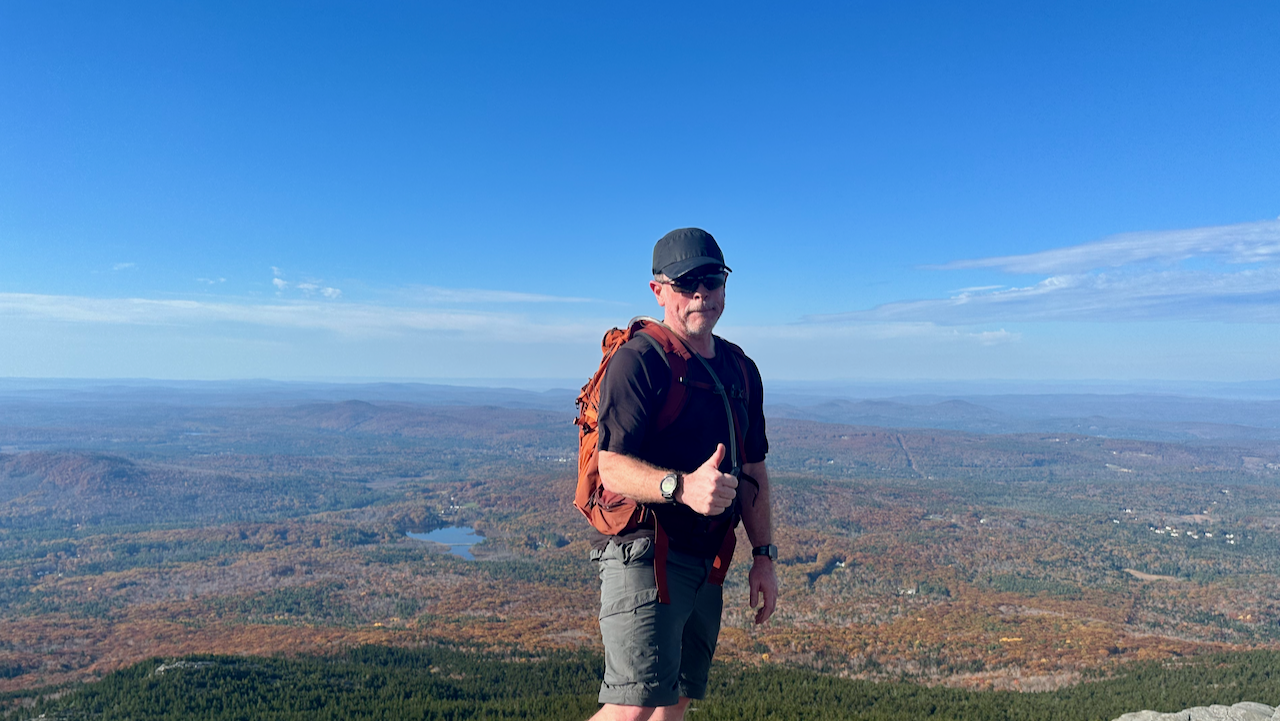A Few Post-Stroke Thoughts and Resolutions
About ten days ago, I had an unexpected stroke. After losing and regaining the ability to talk coherently, spending a day in the emergency room, and spending a night in the hospital for observation and tests, I was discharged seemingly unharmed and unchanged, except that I was on three prescription medicines, had a heart rate monitor on, and needed to see a handful of physicians in the coming weeks.
But, basically, I had a stroke and was fine. Crazy.
Except.. I didn’t feel fine. I was confused and a little scared and immensely frustrated. Where did this come from? Was it going to happen again, only worse? How could I prevent it? What should I be doing differently?
At this point in time, we have no answers. By all measures, I’m healthy. Except I had a stroke. What should I be doing differently? Well… nothing, except taking these pills. Will that help? Probably?
In the few days after the stroke, I realized that while I was physically capable of returning to work at 100% effort on the next Monday morning, I wasn’t ready for that. I needed to take the time for it to settle, to follow the advice of many of my friends and colleagues when they said “slow down” and “take care of yourself”. So, during the week, I did a bit of critical work, but I also took time to think, to read, to walk, to compare notes with friends, to process.
I have a long way to go on that thinking and processing journey - probably the rest of my life, however that works out.
Meanwhile, a few initial thoughts on fortune, mortality, and balance.
Resolution 1: Pause to reflect, treating this stroke as an opportunity
Two reactions to having a zero-impact stroke feel natural and easy. Painless, even:
- File it away as bad luck. I’m not at risk for this… so… wrong time, wrong place, wrong collection of blood cells in the wrong spot in the brain.
- Shrug it off. I’m fine. No impact. All good. Return to life as it was.
I’m choosing to look at this differently.
I feel supremely lucky that I had this stroke and that it happened the way it did.
Apparently, I am at risk for stroke. After all, it happened. Now I know. Modern medicine might not yet know why, but we know I am.
I was lucky it happened during the day, when I noticed. If it had happened when I was sleeping, I would never have known. I suspect that If I had been sitting quietly in that meeting, not speaking up, I might not have noticed. Sure, I felt odd, but… coulda been caffeine. It was my difficulty in speaking that made it clear to me that something was wrong.
I was incredibly lucky that it has had no lasting impact. Most stroke victims aren’t as fortunate.
Because of this series of fortunate events, I have an opportunity to choose how to respond.
Initially, these are my choices:
- As noted, to view this as fortune, not misfortune.
- To take this warning seriously, to periodically pause and reflect on what could have been.
- To take the time to learn more about strokes, causes, and therapies, because now it’s personal.
- To create a plan and a set of actions to change my course to reduce the odds of reoccurrence, which is possible even if we don’t yet know why it occurred.
Resolution 2: Live intentionally, facing mortality with no regrets
Two weeks ago, if you’d asked me when I expected to have a stroke during my lifetime, I would have said “never”. I most definitely would not have said “Thursday morning at 10am”.
But now, when do I expect to have another one? I have no idea. It could be anytime. If it happens, it will arrive with no warning, and for no apparent reason. It could have any kind of impact, ranging from none, to the living hell of being trapped in a non-responsive body, all the way to death.
How do you cope with that? How do you process that?
This question of mortality, of course, is something that people have grappled with for all of our existence. It forms the basis of our religions and arguably the basis of our being human.
I’ve faced severe health impact and the chance of death before, but not with this kind of twist. The tumor I had ten years ago was benign. The various bike accidents were recoverable (since I wore a helmet). The work meltdown was tough and left scars, but I moved past it. Back surgery miraculously resolved a possible life of pain and wheelchairs. All of those gave me pause, but I’ve effectively returned to full health after them.
This one’s a little different. I may be 100% healthy by lab measures, but I have a newly-confirmed chronic risk to manage for the rest of my life… mentally, if not physically.
I spent a little time last week going through all my old notes from those events, reading personal stories from many on the net, and perusing literature. What do others do when they face a grim prognosis, what could I learn from them?
There’s an awful lot out there on how people handle the end of life. I won’t do anyone the disservice of trying to authoritatively summarize it here. One of the more popular reads is by Bronnie Ware, on the “Top 5 Regrets of the Dying”. Most of what I found was pretty consistent with her list.
A few clear, unsurprising take-homes:
- Live your life true to yourself
- Family and friends matter more than work
- Happiness is a choice
As I look up briefly from puzzling over the mortality problem, these are my intentions:
- When making decisions about where to put my time and energy, remember that they are limited and finite resources
- Aim to make the most of my remaining time on this planet, however long or short that time may be
When I was in the midst of that stroke, I realized that my time as a healthy, active, independent person might be over. I was sad it was over, because I have so much more I want to do. I may end up in that situation again, but I am resolved to be able to look back with no regret at where I put the time I have remaining.
How to turn these intentions into regular, practical choices? Tricky…. Along the top of the white board in my home office where I sketch project plans and track tasks, I have written “You are still a back surgery patient”. That reminds me to stretch… most days. Next to that I now have “You are a stroke survivor.” (Nope, that was not a goal.)
Resolution 3: Rebalance my life, focusing on my priorities and values
Having accepted the stroke as a fortunate reality rather than an irrelevant random event, and having decided to live even more intentionally going forward… now what?
While I may have annoyingly high odds of a stroke recurrence, I don’t have a time line. Could be anytime. Could be never. In discussing this problem with a good friend of mine, he framed the puzzle something like this:
Imagine you live 30 more years until your mid-80s. In all three of these scenarios, you are completely mentally lucid for the rest of your life:
- One year from now, you have another event after which you are permanently like what you were for those two hours. Unable to talk. Unable to control your hands reliably.
- Same situation, only ten years from now.
- You never have another stroke event.
In all scenarios, what will you wish you had done in the first year?
After chewing on this last week while walking in the woods, here’s my answer:
- With only a year of independence and mobility left to me, I would want to maximize time with family and friends, and hike several places around the world I haven’t been yet. But I’d also want to maximize my positive impact on society and tie up a number of the things I’m doing now that feel important to me. If those things didn’t line up with my current employment, I might stop working to focus on those. It wouldn’t just be just a year of skydiving and powder skiing…. although admittedly, I’d do a lot more of that in one year than I have up to this point.
- With ten years… roughly the same answer. But I would make sure that my employment did line up with those areas of impact that are important to me, and I’d probably stretch out the adventures a bit to be a bit more realistic with time.
- Same answer as two.
Those answers helped illuminate a few key points to me.
- I’ve spent a lot of time in the past thinking about goals, priorities, and values. I’m happy with how my personal life is balanced. It’s the professional life that keeps getting in the way… :-)
- I joined Memorial Sloan Kettering in 2022 because the work I would be able to do there is aligned with my values and my job priorities, and because working at the intersection of healthcare and digital change feels important to me. This was a very deliberate decision on my part. And, despite the fact that my mission now at MSK is not what was described to me before I joined, the alignment and potential for impact are absolutely there.
- That said the journey with MSK thus far has been extremely high-stress, with measurable impact on my health and overall quality of life. I have already been feeling the need to regain balance and establish boundaries. Having a stroke, and then reaching the conclusions I’ve described here only further reinforce the need to do so.
And so, the simple answer to the puzzle of “how best to proceed forward” is “keep doing what I’m doing, with a few rebalancing changes”.
Broadly, the way I’m thinking of these changes is along these lines:
- Medical adjustments - take my prescriptions, then factor in any changes advised by my physicians in the coming months. But don’t bank on that advice changing much of the situation for the better.
- Fitness adjustments - renew my commitments to fitness and health routines intended to keep me as healthy, energized, and active as possible. This includes a program of cycling, stretching, nutrition, and mindfulness, on a foundation of getting enough sleep regularly. (That latter has been a real challenge while at MSK.) I may describe my current fitness regime in more detail in another note. Having a stroke has only emphasized how incredibly important having these kind of habits has been and will continue to be.
- Behavioral adjustments at work - better utilizing my time by asking for more help from my team, prioritizing time more rigorously, creating and sticking with boundaries, blocking time to focus, getting out more often, and establishing other practices to help improve the overall effectiveness of me and my organization.
- Philosophical adjustments - prioritizing time with friends (old and new), ensuring that I get outside as often as I can, taking the time to write more (like this), taking the time to dig deeper into better understanding what’s important to me and how I can best use my remaining time, whatever that may be.
Onwards.




